This is 54: Gayle Brandeis Responds to The Oldster Magazine Questionnaire
"I've been learning Yiddish as a way of connecting with my ancestors, and that's felt really meaningful."
From the time I was 10, I’ve been obsessed with what it means to grow older. I’m curious about what it means to others, of all ages, and so I invite them to take “The Oldster Magazine Questionnaire.”
Here, author Gayle Brandeis responds. - Sari Botton
Gayle Brandeis is the author, most recently, of the essay collection Drawing Breath: Essays on Writing, the Body, and Loss (Overcup Press.) Earlier books include the memoir The Art of Misdiagnosis (Beacon Press), the novel in poems, Many Restless Concerns (Black Lawrence Press), shortlisted for the Shirley Jackson Award, the poetry collection The Selfless Bliss of the Body (Finishing Line Press), the craft book Fruitflesh: Seeds of Inspiration for Women Who Write (HarperOne) and the novels The Book of Dead Birds (HarperCollins), which won the PEN/Bellwether Prize, Self Storage (Ballantine), Delta Girls (Ballantine), and My Life with the Lincolns (Henry Holt BYR), a state-wide read in Wisconsin. Find out more at www.gaylebrandeis.com.
How old are you?
54. It feels like I’ve been 54 a long time, probably because I thought I was 54 much of the year I was 53. 53 wasn’t a memorable number for me, somehow, maybe because it’s a prime number, or maybe because time during this weird pandemic era has felt so slippery and hazy and stripped of meaning. Whatever the reason, I’m glad to be 54 for a couple more months; it makes me think of glamorous disco references to Studio 54 from my youth (Chic singing “Come on down to 54” in “Le Freak” and the like.) There hasn’t been as much dancing as I’d like in this year-plus of being/thinking I was 54, but I did roller-skate around the house to disco music on my birthday.
Is there another age you associate with yourself in your mind? If so, what is it? And why, do you think?
I’ve pinpointed my truest inner age as 10. I started writing and publishing a neighborhood newspaper that year, and even though I was shy and quiet most of the time, the paper gave me the courage to talk to my neighbors and sell subscriptions door to door; it was the start of writing pushing me out of my comfort zone, something my work still does for me today. Also, I had a wonderful language arts teacher that year, Mrs. Cohen, who encouraged me not only as a writer but as someone with a quirky way of looking at the world that often made me feel out of step with other kids, and that meant a great deal to me—she showed me my weirdness could be a strength and not just a liability. When my first novel came out, she wrote me a letter saying she always knew I'd be a published writer; I sadly lost the letter, which included her return address, before I could write back to her, and hope she knows how instrumental she was in helping me chart and stay that course. I’m glad I’m not a 10 year old now—there are certain adult things I very much enjoy—but the innermost part of me is still that expansive, discovery-filled age.
I’ve pinpointed my truest inner age as 10. I started writing and publishing a neighborhood newspaper that year, and even though I was shy and quiet most of the time, the paper gave me the courage to talk to my neighbors and sell subscriptions door to door
Do you feel old for your age? Young for your age? Just right? Are you in step with your peers?
I can remember a single moment when I fully inhabited my age. I was walking to pick up my kids at summer camp (I had my older kids at 22 and 25, my youngest at 41.) I was 30 at the time, and a voice inside me said “I am a 30-year-old woman” in a really commanding way, and I felt the truth of that in every cell of my body and it gave an extra oomph to my stride. The feeling only lasted a minute or two, but it left a deep impression; I loved that momentary full-body claiming of myself as a grown ass woman. Otherwise, I've always felt young for my age.
I developed more slowly than most of my friends, which was fine with me; I was really scared of growing up (a funny coincidence: as I was writing this, my spouse, having no idea what I was writing, started singing “I don’t want to grow up, I’m a Toys R Us kid,” making it sound like a dirge!) and I was happy my body seemed to be forestalling it, sometimes with my help. I was malnourished from being really sick for a year when I was 13, which likely stunted my growth, and then I extended this by pretending to be sick—abusing laxatives and the like—for another year because I wasn’t sure how to be a regular teenager and wanted to hold on to my “sick girl" identity, my little girl identity. Even after I was ready to grow up, I looked like a kid.
In college, I took a dance class from a woman who had converted her garage to a dance studio; the other students were around 9 years old, and she told them I was 12 so they would see me as a peer (and this was believable, except when I drove myself to and from class!) I still have a bit of a baby face, albeit a baby face with wrinkles.
What do you like about being your age?
The sense of perspective. It’s much easier to let go of things that don't matter, and put my whole heart into things that do.
I can remember a single moment when I fully inhabited my age. I was walking to pick up my kids at summer camp. I was 30 at the time, and a voice inside me said “I am a 30-year-old woman” in a really commanding way, and I felt the truth of that in every cell of my body and it gave an extra oomph to my stride.
What is difficult about being your age?
I plan on living a good long while, but it’s hard to avoid the looming specter of mortality as one gets older. Awareness of my mortality fuels me in positive, inspiring, ways—it makes me want to be fully alive while I’m still alive—but it also leads to a lot of worrying. Worrying, for example, that I won't have enough time to read all the books I want to read, or write all the projects kicking around inside of me. Worrying I won’t get to meet my future grandkids. Worrying I'll lose my memory. Worrying about not being as financially secure as I “should” be, and what that means for my old age. Seeing my aging neck on Zoom. (I understand intellectually that cringing upon seeing my neck is fueled by patriarchy and misogyny and capitalism, and know that no one other than me is going to care that my neck is loose and crepey, but I still cringe. Each time I do, I try to remember send my neck love and thank it for all it does for me.)
What is surprising about being your age, or different from what you expected, based on what you were told?
When I was a kid, I was under the impression that I wouldn’t feel like the same person when I became an adult, which is partly why I was so terrified of growing up. I would see ads for ugly beige orthopedic shoes and boring polyester pants suits and drab, constricting pantyhose and thought I would somehow be forced to wear these things as a grown up, which I dreaded with every ounce of my being. It was such a relief to realize I would still feel like the same silly, curious person inside as an adult, and that I could still dress playfully (which I do—I love colorful, fun patterns just as much as I did when I wore rainbow suspenders as a kid).
What has aging given you? Taken away from you?
Aging has given me the perspective I noted above. It’s helped me see that time goes so quickly, that we're such tiny specks in the universe, yet we also have more inside us than we can ever fathom, and that makes me want to use my remaining time here well, to speak up when I need to speak up, to seize the day when I can and be kind to myself when I need to rest.
Aging has taken a lot of my energy and physical flexibility—I can no longer do the splits, or kick above my head—and it has muffled most of my senses; my eyesight, hearing, and sense of smell have all lost their sharpness, as if my body is slowly preparing to let go of the world.
Aging has also taken away my sense of professional ambition; I've been lucky to have had some success in the writing world, but I used to want even more (even if I never really voiced this, or even fully acknowledged it to myself), and now, while I know I’ll keep writing no matter what, and am grateful to have built a life around words and to have found such a lovely supportive community of readers and fellow writers, I honestly feel okay with the possibility of never publishing another book after my new essay collection, Drawing Breath, something I never thought I’d be able to feel or say. I want to keep learning and growing as a writer and human, want to keep pushing my own creative envelope, to keep supporting other writers, (and of course keep figuring out ways to earn income), but I don’t need external validation for any of this to matter. It’s very freeing, this letting go of the need for recognition. It makes me want to write as weirdly and wildly and truly as possible, and be the best literary citizen I can.
There hasn’t been as much dancing as I’d like in this year-plus of being/thinking I was 54, but I did roller-skate around the house to disco music on my birthday.
How has getting older affected your sense of yourself, or your identity?
I‘ve become quite obsessively interested in genealogy over the last few years, and it's helping me feel a sense of connection to both the generations that came before me, and those yet to come, which has been very grounding, especially in the midst of pandemic isolation. It's reminding me that I don’t live in a bubble, that my life is the result of thousands upon thousands of years of survival, sometimes under very harsh circumstances, and it's helping me understand in an even more visceral and freeing way that I’m just a blip in a larger continuum, that my time here is brief but rooted, that I’m part of a rich web of interconnectedness.
I've been learning Yiddish as a way of connecting with my ancestors, and that's felt really meaningful. I’ve also been interrogating my whiteness and privilege in a deeper way over the last few years, and recognizing my own complicity within broken systems. I’m grateful for the voices of BIPOC writers and activists, often much younger than me, who remind me to take a critical look in the mirror and to do what I can to help co-create a more just, equitable, and sustainable world. I’ve been a progressive activist in one form or another since I was a kid, and thought I was pretty aware, but in recent years I've come to realize how many gaps riddle my awareness, how much I still need to learn.
Awareness of my mortality fuels me in positive, inspiring, ways—it makes me want to be fully alive while I’m still alive—but it also leads to a lot of worrying.
What are some age-related milestones you are looking forward to? Or ones you “missed,” and might try to reach later, off-schedule, according to our culture and its expectations?
I didn't have a b’nai mitzvah as a kid—I grew up in a very secular Jewish family, and didn’t feel any pressure or encouragement to have one (plus I was too shy to voluntarily submit to being the center of attention) and sometimes wonder if participating in this ritual would have helped me step into adulthood more cleanly and confidently. My youngest son turned 13 a few months ago, and we recently watched his first ever friend’s bar mitzvah over Zoom, which was really moving. We’ve talked about the possibility of doing a non-traditional b’nai mitzvah together sometime down the line, an idea I really love.
What has been your favorite age so far, and why? Would you go back to this age if you could?
I’m not sure I have a favorite age—each age has held its gifts and challenges (some more than others). I don't think I’d want to go back to any age; the thought of doing so feels stifling, somehow, even for ages that held a lot of joy. I’m happy to keep moving forward, even knowing I’m headed toward oblivion. That said, sometimes I feel an upwelling of grief over the fact that my childhood is truly gone, that my children’s early childhoods are truly gone, that we can't return to any of it, so perhaps there is part of me that would love to pop in and visit earlier moments of sweetness (and I'm grateful I can do that—at least to some extent—as long as I have access to my memories.)
Is there someone who is older than you, who makes growing older inspiring to you? Who is your aging idol and why?
I feel lucky to have many role models, among them women in their 70s like my sister Sue, who is more athletic and energetic than I've ever been in my life, my mentor/colleague/friend Alma Luz Villanueva, who lives with such vibrant, creative fierceness, and the writer Leah Baer, who I've never met in person, but who I can tell via social media embodies jouissance, a word she uses often. They all show me aging can be filled with joy and inspiration and badassery.
My dad was really sharp and funny into his 90s, and continues to be an inspiration for me in so many ways, even though he’s been gone for nearly seven years. Nature is an aging mentor for me, too—when we were living in Tahoe, I would watch the yearly cycles of the Sierra currant bushes and thistles and salsify, and it reminded me that we're all part of natural cycles of growing and blossoming and going to seed and returning to the earth, and that's okay, even beautiful. Joe-Pye weed and crab apple trees and hydrangea bushes and the like are teaching me the same things now that we’ve moved to the Chicago area.
I love how aging connects us with all living beings on our gorgeous, threatened planet. I also was really inspired when the poet TC Tolbert (who I’m pretty sure is younger than me) posted a photo of a bumpersticker that said "I love aging and dying” as a way of reframing our relationship with these natural processes. I love that so much, and often think about that phrase and try to live it.
Sometimes I feel an upwelling of grief over the fact that my childhood is truly gone, that my children’s early childhoods are truly gone, that we can't return to any of it, so perhaps there is part of me that would love to pop in and visit earlier moments of sweetness.
What aging-related adjustments have you recently made, style-wise, beauty-wise, health-wise?
Really the only main adjustment I can think of is the need to have reading glasses scattered throughout the house. (And on more than one occasion, I have become quite a parody of middle age by frantically looking around for a pair when one is already sitting on my face.) I started dying my hair purple nine years ago, but that felt less like an aging-related adjustment (I didn’t have much gray at the time, though I certainly have a lot more now) and more of a realization that I could be more playful with my hair, which had been long my whole adult life. I had recently cut it short after I'd lost a bunch of hair due to chronic illness, and then realized I could have fun with the hair that was left.
Now purple hair feels like my natural hair color—well, maybe not “natural”, exactly—more like my “true” hair color. Also, I find myself purchasing turtlenecks. I feel a bit sheepish about this—my mom (like Nora Ephron) also felt bad about her neck, and was the queen of turtlenecks and scarves, and I’d told myself I wouldn’t fall prey to the same impulse to cover my own signs of aging—but the turtlenecks do keep me from being preoccupied by my own neck on Zoom, and I’m thankful for anything that helps me be more fully present.
What’s your philosophy on celebrating birthdays as an adult? How do you celebrate yours?
I love breakfast in bed on my birthday (a byproduct of my parents waking me up with a cupcake/muffin with a candle and the “Happy Birthday” song as a kid) and/or a nice dinner (take out in pandemic times, going out otherwise), and like to have parties for the milestone birthdays. For my 30th, I asked everyone to write who they wanted to be, not who they were, on their name tags; I wrote "loud bossy chick” on mine, and I’ve definitely become more loud and bossy than I had been, through not often dramatically so.
For my 40th, I asked people to bring some sort of meditation/poem/etc about turning 40 (I’m realizing now how bossy it was of me to demand such labor for my birthday parties!) When we gathered in a circle for people to share these things, it turned into my friends saying nice things about me instead, which I hadn't asked for and felt sheepish about. I had just left my first husband a few months before, and was still feeling guilty about this and kind of lost at sea in general; I didn't feel worthy of a bunch of praise, and I could tell some of my friends who were close with my ex were uncomfortable with such an outpouring, too, and I regret that I wasn't loud or bossy enough to stop it at the time.
My 40s ended up being pretty tumultuous, so by the time my 50th came about, I just wanted a quiet celebration with family and no demands on anyone, other than getting to Shelter Island, NY, where my brother and sister in law had generously offered to host us. All my kids and siblings and their partners and some of their kids gathered, and it felt so beautiful to just eat and laugh and hug and soak in each other's company and marvel at how it's possible we’re as old as we are. Someone there asked what I was hoping for in my 50s and I said all I wanted was a peaceful decade. Between Trump and the pandemic and one climate disaster after another, these years have not been very peaceful externally, and I've felt and continue to feel tremendous anxiety about all of it and more, but I also feel more at peace at the core of myself, more fully at home in my skin (crepey neck and all), and I'm grateful for that. I want to celebrate being on this planet for as long as I can.





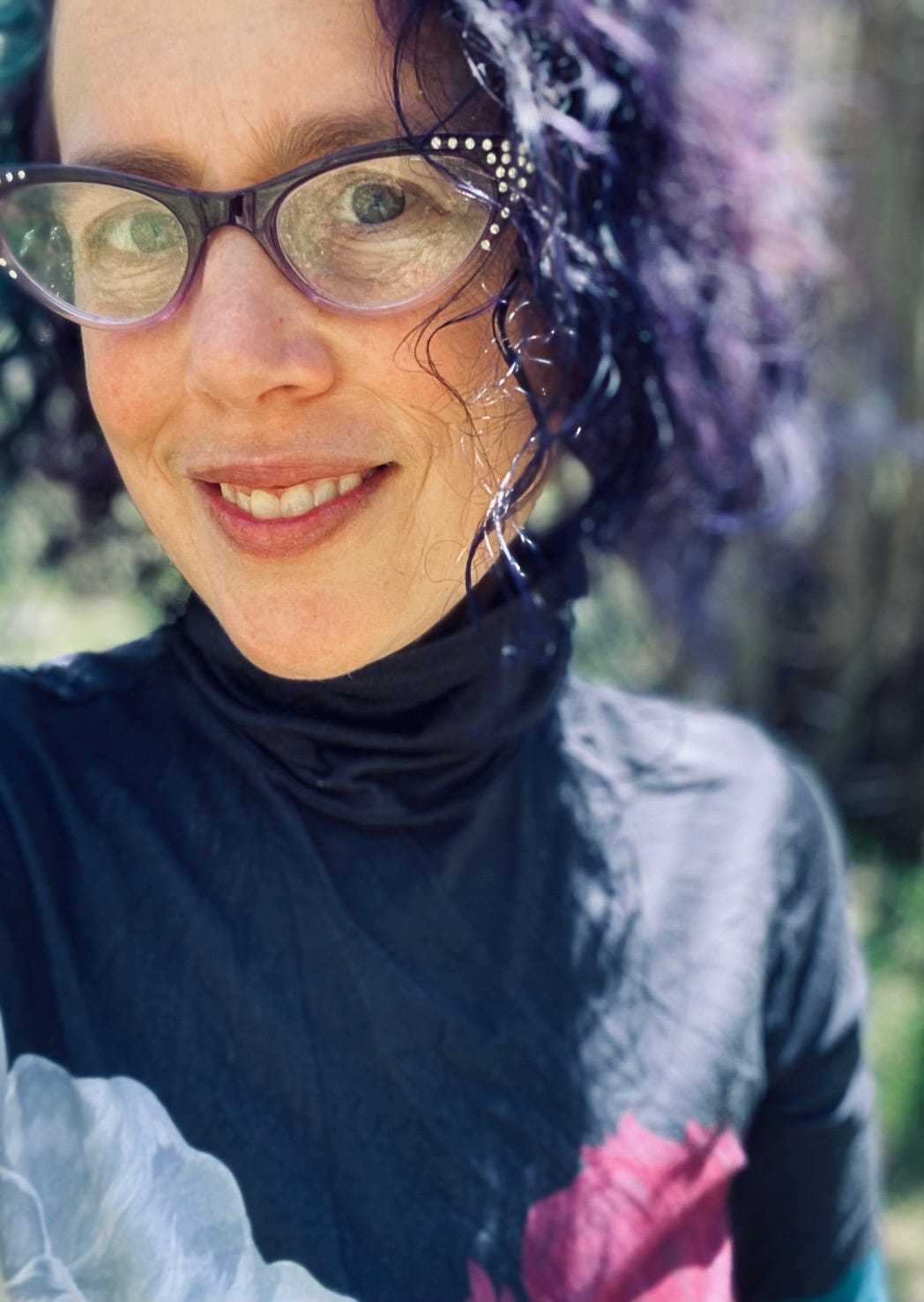
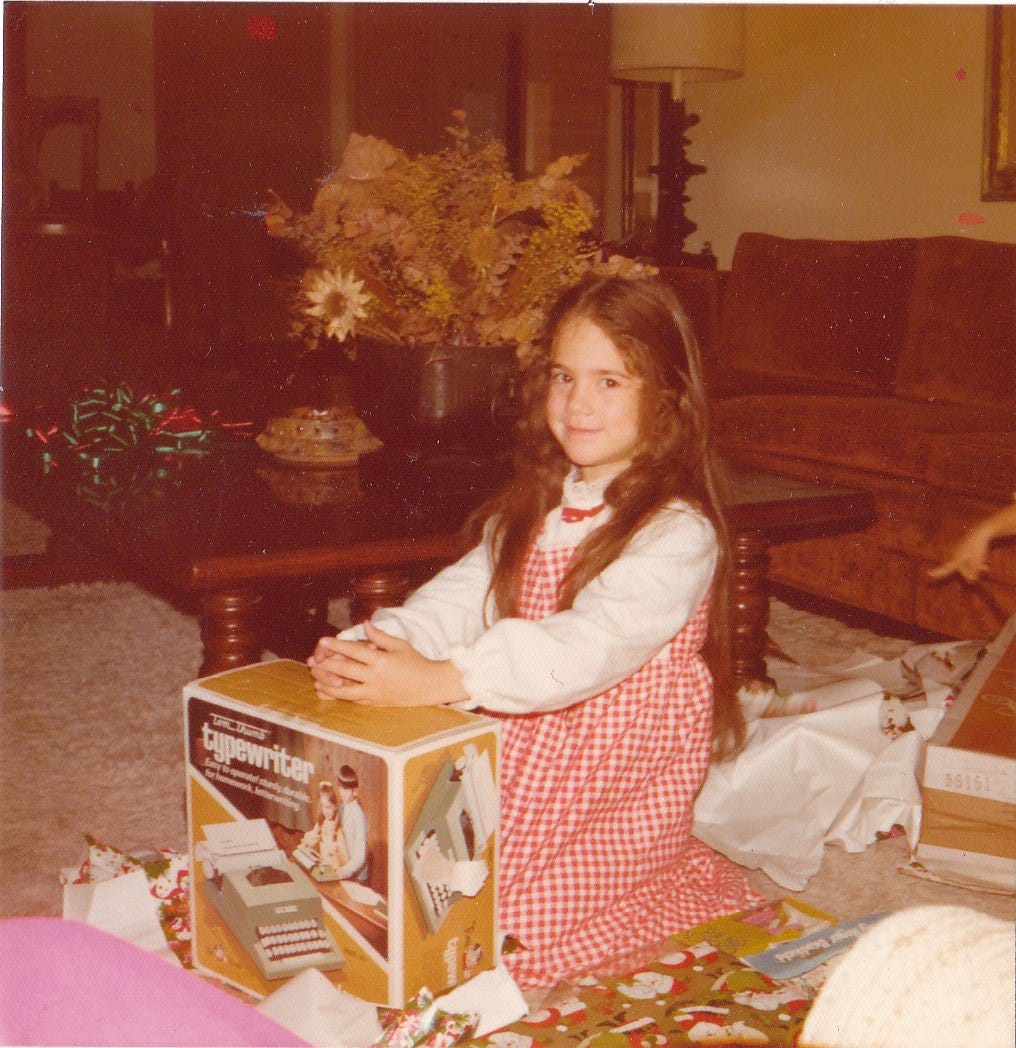
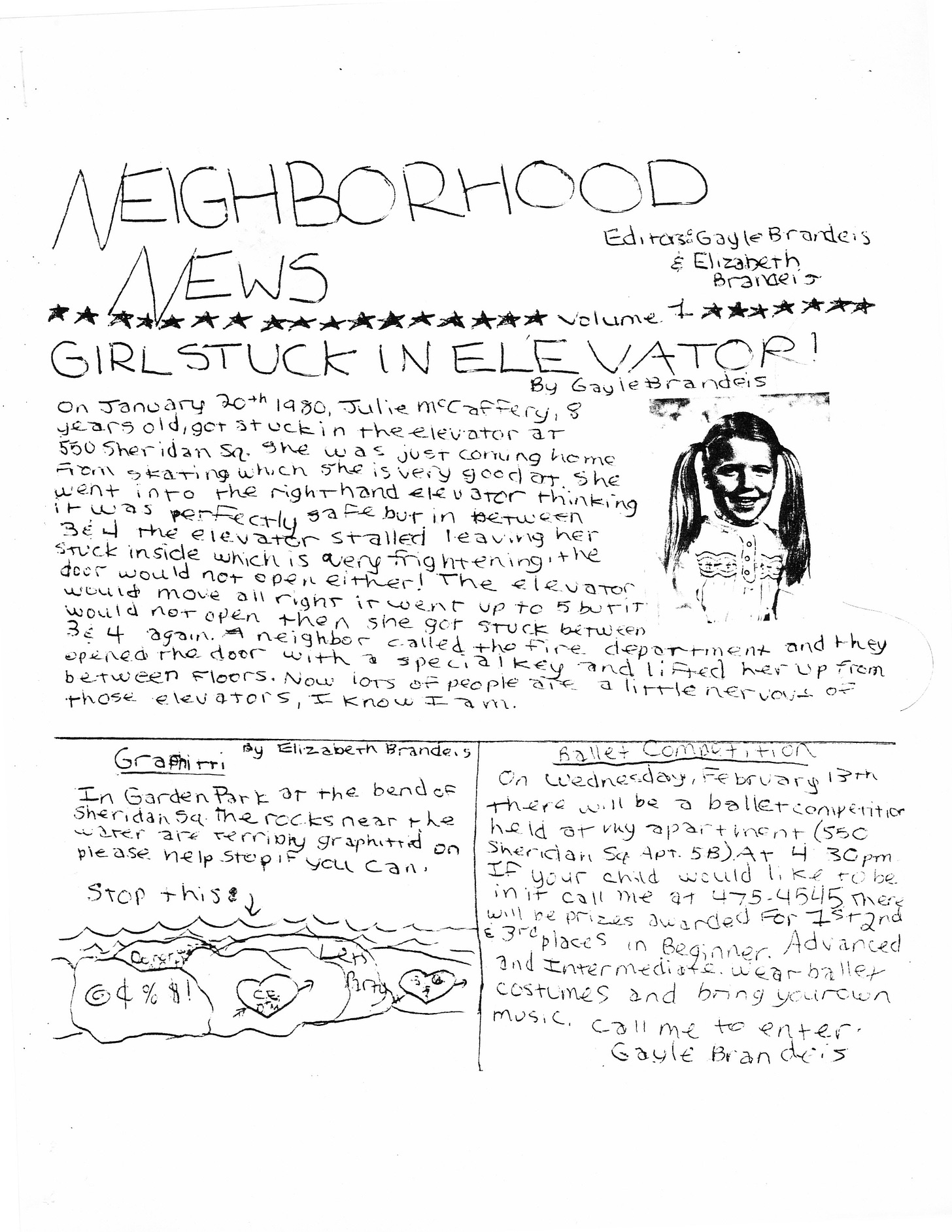
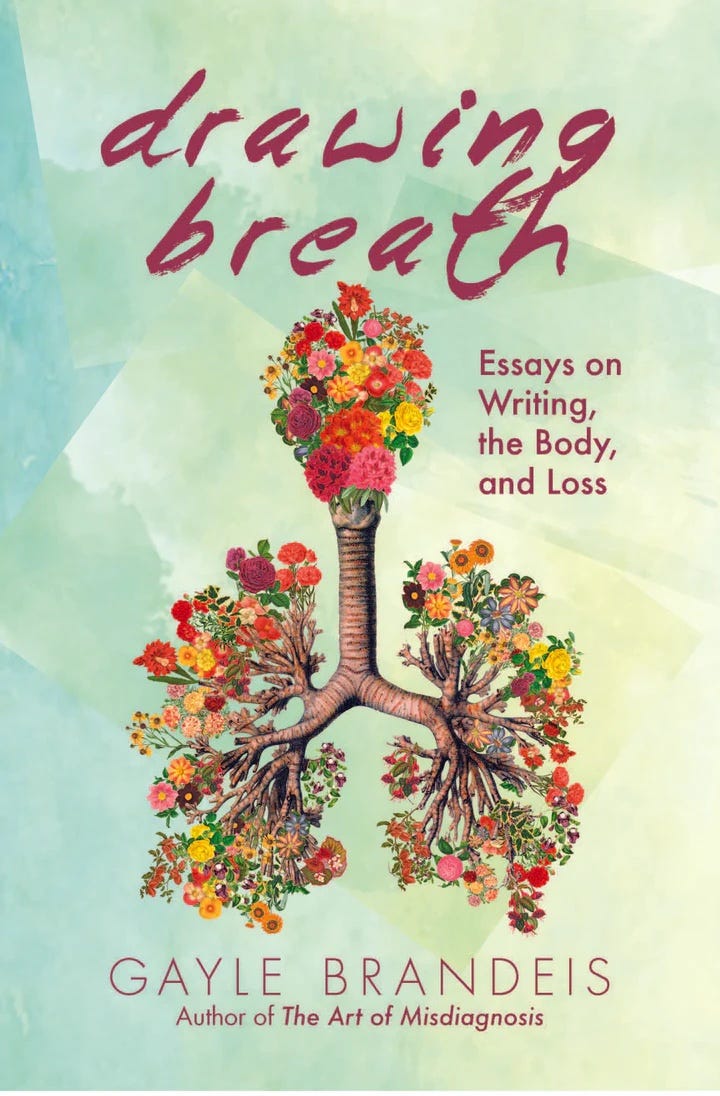
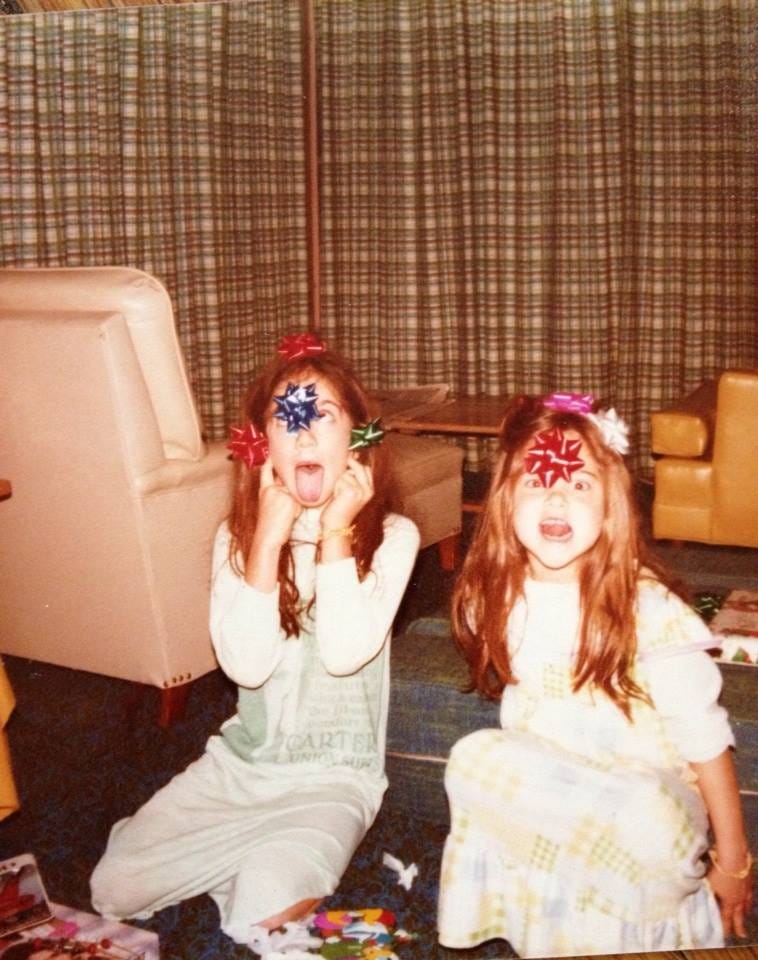
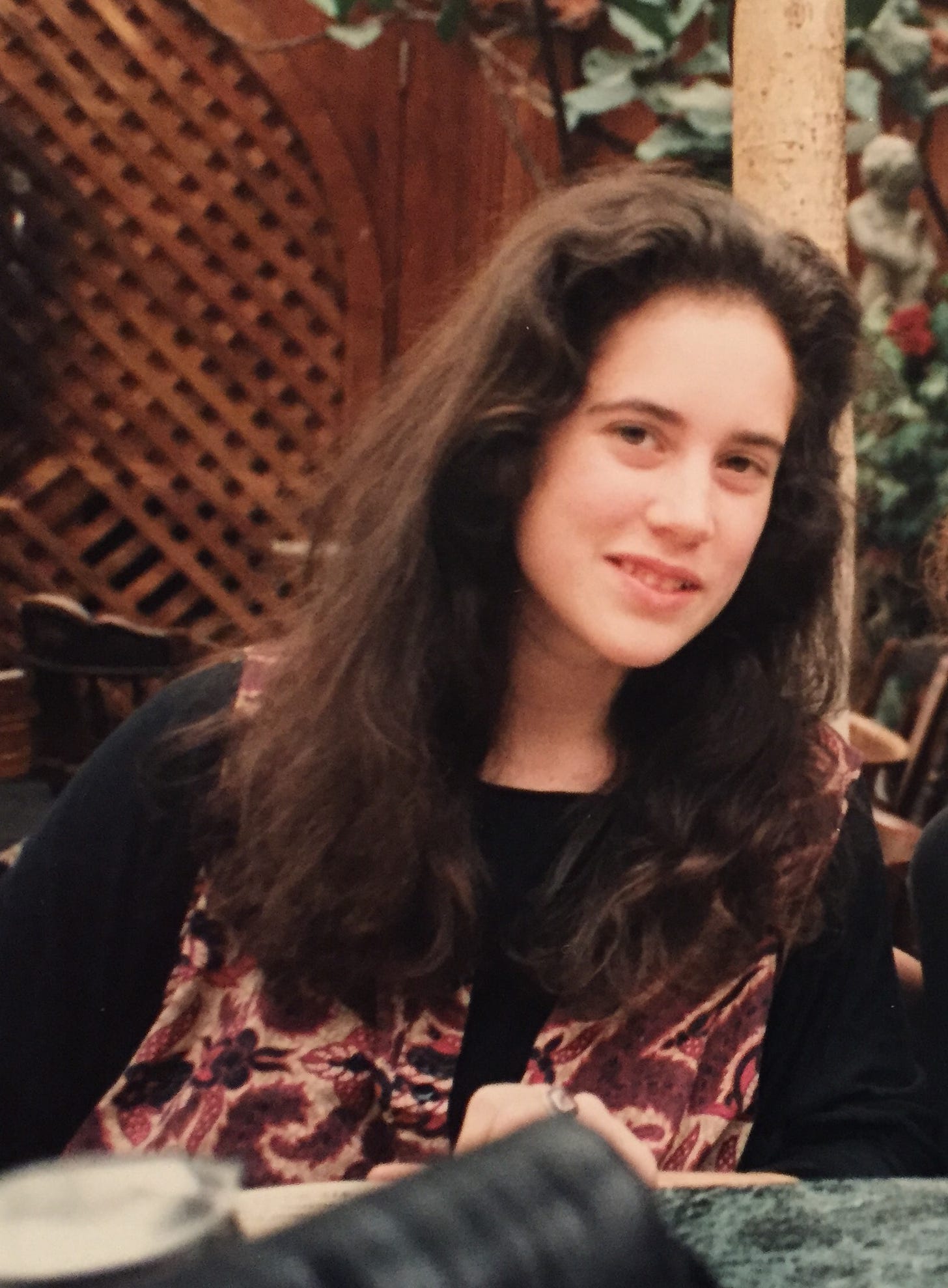
Gayle's writing has always been a pleasure to read, and this is no exception. I would say she is a mensch, but I guess that is sexist.
Lovely answers, Gayle! 💖